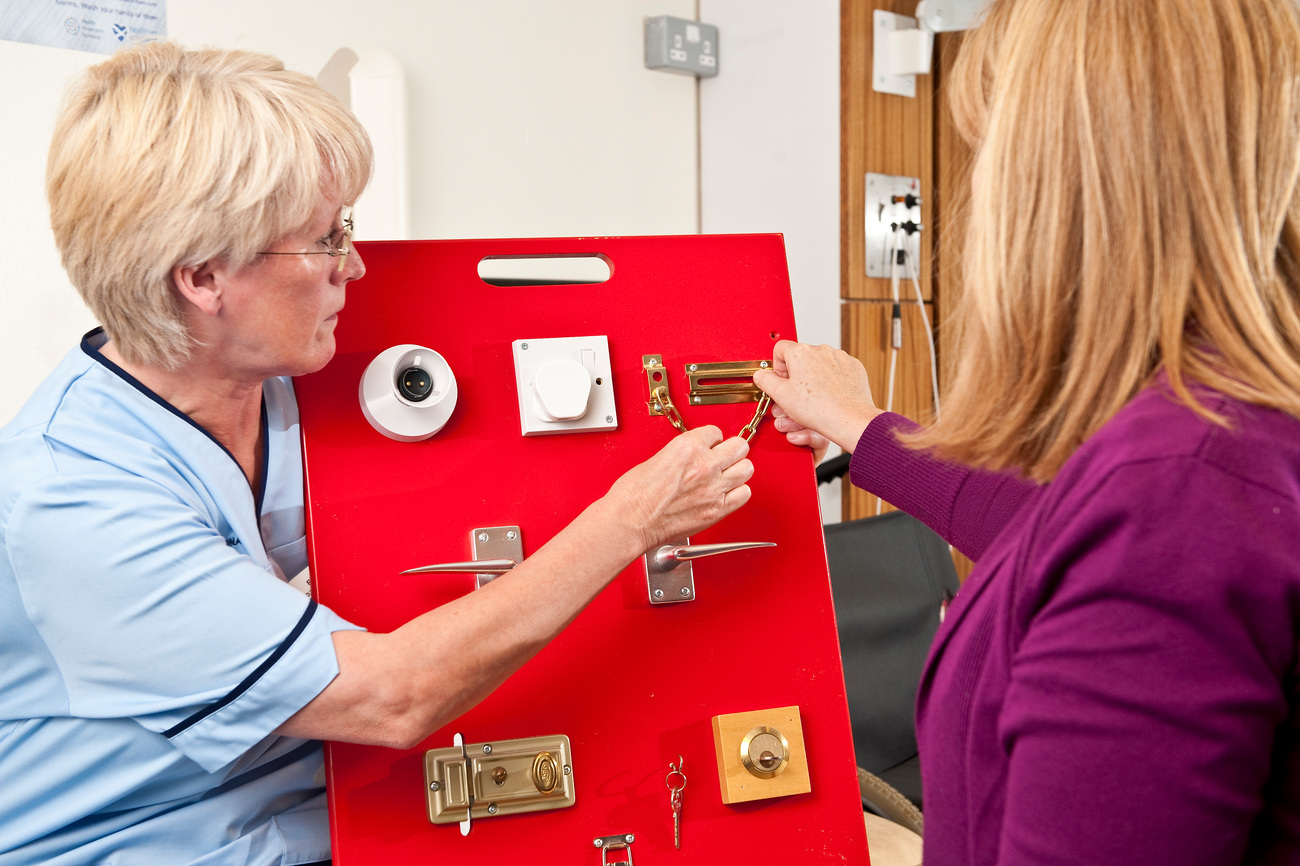Previous
Nursing support worker
You can become an occupational therapy support worker by applying for a vacancy on our recruitment website or doing a Modern Apprenticeship.
Occupational therapy takes a whole-person approach to both mental and physical health wellbeing.
Occupational therapy support workers help occupational therapists to assess, diagnose, and treat people with physical, mental, or social issues.
They also support people to adjust their lifestyles and find new ways of doing things to achieve their full potential.

To become an occupational therapy support worker, you'll need a good standard of education. There are no specific entry requirements, but useful subjects include:
Speak to your guidance teacher about subjects offered at your school.

You may find it helpful to get some healthcare experience by doing a work placement or volunteering. You’ll get training, increase your knowledge, and learn new skills. This could help you when applying to university, college or a new job with NHSScotland.
A Modern Apprenticeship will help you get the knowledge, skills, and experience you need to reach your career goal.
Learn about the Modern Apprenticeship in Healthcare Support.
All Healthcare Support Modern Apprentices study 3 mandatory units:
You'll choose your remaining units from the clinical pathway options for occupational therapy.
As part of the occupational therapy team, you’ll provide practical support, to help patients continue doing day-to-day tasks and activities they enjoy.
You’ll care for people of all ages with a range of health conditions. For example:
You'll also work with occupational therapists to assess, diagnose and treat people in hospitals, clinics, or in their own homes.
Tasks include:
You'll need these skills:
Occupational therapy support workers work with other health and social care professionals, including:
You could work in:
When joining the NHS, you will work through the Mandatory Induction Standards. These standards are designed to help you work safely and must be completed within the first 3 to 6 months of employment.
You may also be encouraged when in the post to work towards further education qualifications. These may include:
Getting experience as a healthcare support worker can be very helpful if you decide you want to go to university and study to become a registered occupational therapist.

Discover the skills and qualifications you’ll need for each role and what the work will be like.
Explore careers
We'll guide you through the recruitment process, from applying online to interview preparation.
Help with recruitment